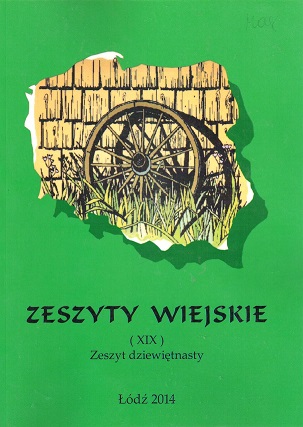Kolberg i inni. Z dziejów europejskiej dokumentalistyki folklorystycznej
DOI:
https://doi.org/10.18778/1506-6541.19.14Abstrakt
In the introduction to the article, the author sketches the European background of the term “folklore” (coined by Thoms in 1846) and its historical and aesthetic Polish determinants. Folk culture in Poland was basically a peasant phenomenon that preserved its archaic character until deep into the 19th century due to persistence of serfdom.In that era, the collections of folk-cultural artifacts were considered as a patriotic and romantic task within Europe, but particularly in a country that had lost its independence.This article presents author’s overview to the main European folklore collectors of the19th century and underlines that the Polish folklore collector Oskar Kolberg was one of the biggest in Europe. His unprecendented activity left panoramic and systematic ethnographical materials of Polish folk culture in his monumental life work called Lud… His 92 volumes of Complete Works have been fully edited posthumously.
Pobrania
Pobrania
Opublikowane
Jak cytować
Numer
Dział
Licencja

Utwór dostępny jest na licencji Creative Commons Uznanie autorstwa – Użycie niekomercyjne – Bez utworów zależnych 4.0 Międzynarodowe.











